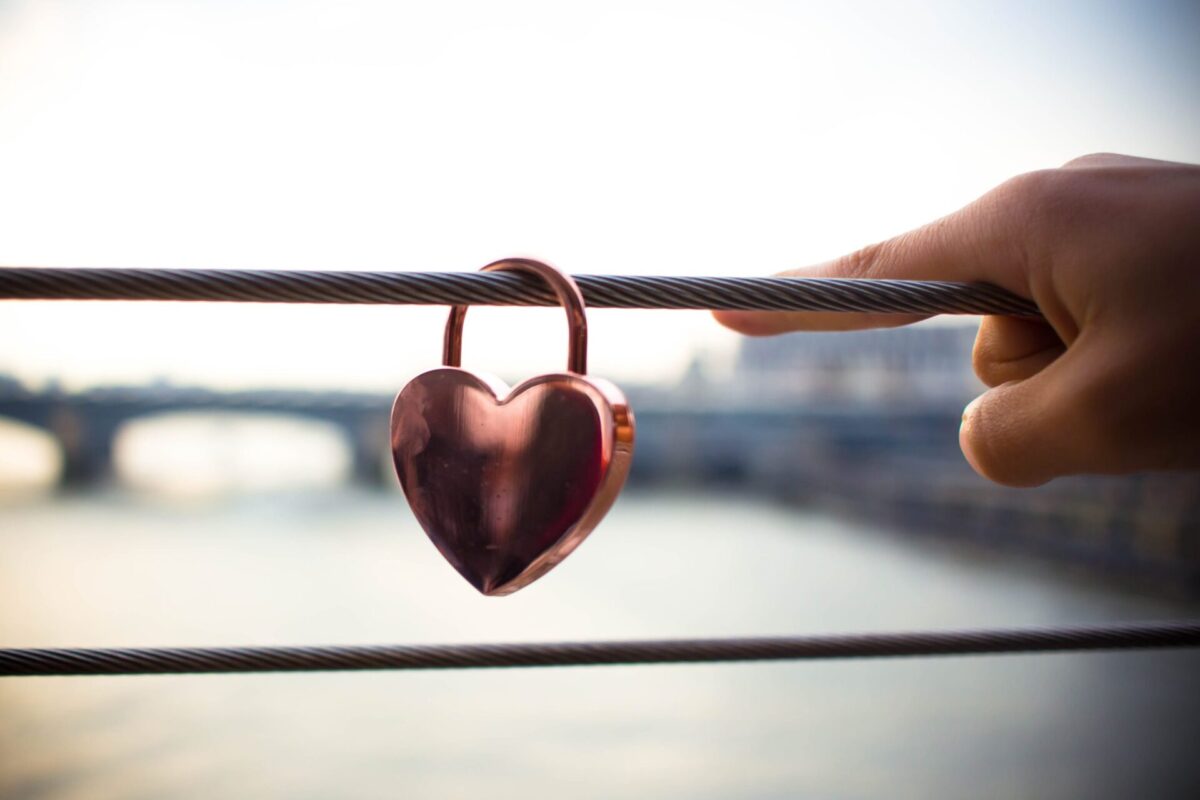Journal privacy is a topic I’m frequently asked about. The very nature of journaling raises concerns about our writing falling into the wrong hands. It’s true that a violation of privacy could bring about unsavory results.
But the real problem is that you censor yourself when writing if you’re afraid of being found out.
The magic of journaling happens because we can be honest, because we can spill our guts on the page – if nowhere else. You’re robbed of the benefits of this release when you can’t open up.
I received the following question from a reader:
“I have journaled my whole life since I was ten years old. I am glad to say I have every single journal still lying safely in my drawers. But recently I’ve become worried about what will happen when my children read all those journals after i have passed away.
Like many people, I have dark periods in my life that are very private. The option to destroy those journals is too painful to think about. Also I hesitate lately to be completely open and honest in my journals for the same fearful reason. Do you have any advice?”
Finding a solution to your privacy issues is essential to your wellbeing. You must feel free and protected if you are to benefit from journaling. So let’s look at some of the options.
1. Post-mortem Destruction
The idea of destroying journals is painful – I agree. There’s no way I could bring myself to destroy any of my creations. However, is that just true of while you’re alive? If that’s the case, you could make arrangements to have them destroyed once you’re gone. I’m not a lawyer, but I imagine that could be included in your Last Will & Testiment or a similar arrangement.
I have an agreement with my sister that she is to acquire them in the event of my death and keep them safe. I’ve given her license to do what she may with them.
2. Conversations
While everyone is different, I’m a “lay it on the line” kind of girl. So my instinct is to call a family meeting — while you’re healthy and happy. If your children don’t know that you keep a journal, this is a good time to tell them. If they already know, you can elaborate.
Explain to them how your journal was a daily snapshot of what you were going through at the time, that it doesn’t necessarily reflect your overall feelings, or that entries taken out of context won’t necessarily reflect the big picture.
Tell them whatever it is you want them to know — tell them whatever you think the journals would make them doubt. That you love them infinitely, that you were happy even with some dark days. Explain that dark days, doubt and self-questioning are very important for growth.
This could be a teaching opportunity for you to explain how you’re able to thrive overall, even with some down days. Perhaps they might even decide to start journaling as well, when they hear how it helped you throughout your life.
Then if you don’t want to destory your journals, and your children are left with them, they will have a solid, positive context in which to place the material if they choose to read it.
My mom is still very much alive, but I would be blown away by the ability to read journals from when she was my age, what she was going through. I think people are more resilient than we allow. I can understand how it would be difficult to stomach certain information – perhaps if a mother were expressing regret over having her children, those children probably don’t need to read that, especially if it was just a fleeting sentiment and not representative of her big picture.
So it’s possible to edit your journals, slicing out any material you don’t feel comfortable leaving behind. Or you could do like the governemnt and just take a black sharpie to certain words and paragraphs. Top Secret.
3. Cover Letters
If a conversation is beyond your comfort zone, you could do the same but in letter form. Spell out everything you’d want anyone reading your journal to know before reading it. If you want to be anal and OCD like me, you could make photocopies of it and rubber cement a letter into the front of each journal.
4. Trusted friends
Another option is to identify a trusted friend or family member who is to inherit the journals upon your passing. You can have a conversation with that person before the fact, explain what you’d like done with them. Perhaps you’d like your children to have access to them, but only after a certain time, when you think they’d be ready for it. Those instructions could be given to your trusted confidante. Or you could ask that person to destroy them.
5. Anonymous donation
The Page always jokes with me that my whole collection of journals will end up in the Smithsonian after I’m dead. Seriously? I don’t think I’m all that interesting. But his point is that a complete chronology of one person’s life, distinctly touched by that time period, could be fascinating 100 or 200 years from now.
I would feel better about donating these journals anonymously to a historical society or similar far away, where they could be enjoyed and used — but not by anyone I know! So that’s another option for you. That way your journals would go to good use, but would not be around to affect anyone in your life.
How do you handle the issue of journaling privacy? Do you have anxiety about leaving them behind? If you have any solutions for Ellen, please leave them in the comments below.
This post was written in response to a reader question. Have a question you’d like answered? Drop me a line and let me know!



